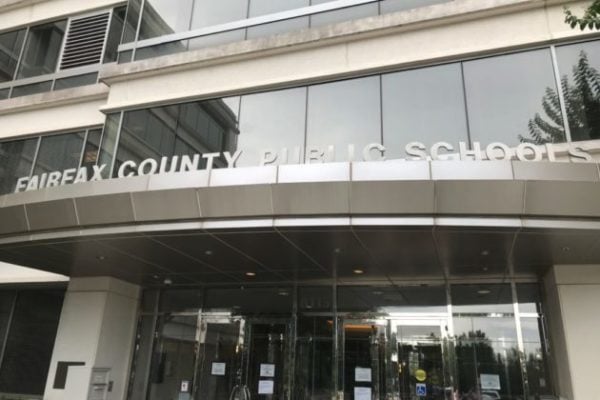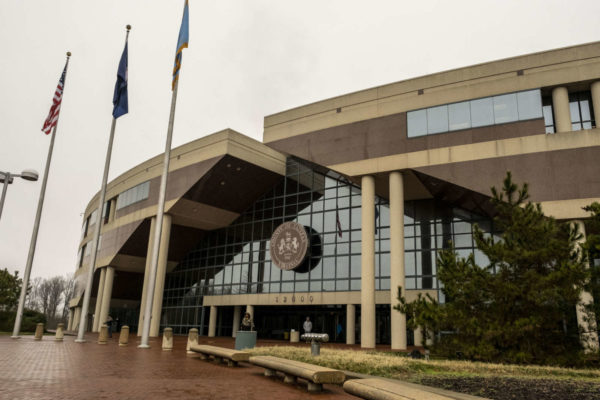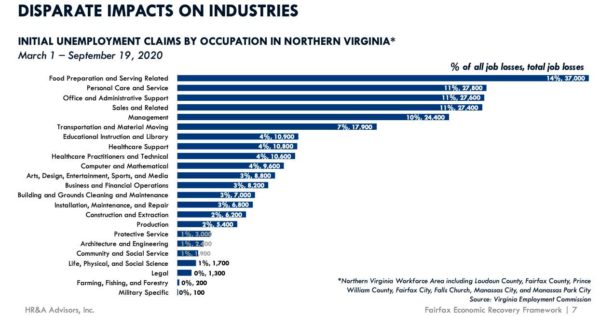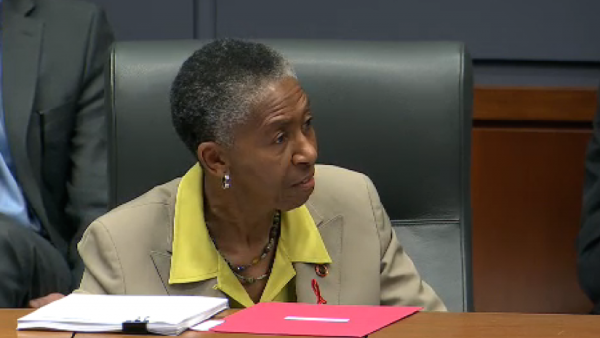
County Stops Using Blotter Due to Data Concerns — The Fairfax County Police Department has stopped using an arrest blotter following concerns that the data could be used to deport immigrants. [The Washington Post]
More on Yesterday’s Loud Boom — An enormous loud boom that reverberated throughout Northern Virginia was most certainly caused by lightning, according to a radar snapshot of thundershowers. [The Washington Post]
Reston Company Lands Big Contract — Noblis, a Reston-based company, has secured a five-year, $263 million contract from the Department of Defense’s defense threat reduction agency. [Virginia Business Monthly]
Following the county government’s lead, Fairfax County Public Schools will soon prohibit voluntary cooperation between staff and Immigration and Customs Enforcement after the school board voted unanimously on Tuesday (May 5) to create a “School Trust Policy.”
Fairfax County School Board members say the new policy will align with the Trust Policy that the county adopted in January, which prohibits employees from giving federal immigration authorities information about a person’s immigration or citizenship status unless required by law or court order.
With the vote, some board members will start working with FCPS staff to develop the policy for full adoption in the near future. According to the school board, the new policy will be designed to help build confidence with immigrant families.
“Even with our school system’s existing commitment to privacy protection, the need for a policy that rebuilds trust with immigrant families remains urgent,” Providence District School Board Representative Karl Frisch, who co-sponsored the measure, said. “Fairfax County took the necessary first step. Our school division will now join them by developing a policy that helps rebuild trust in our schools and keep families together — that is exactly what the School Trust Policy will do.”
Student information, including immigration status, is confidential under the Family Educational Rights and Privacy Act, typically known by its acronym, FERPA. But advocates say ICE can easily access names, addresses, and birth dates to locate undocumented students and their parents.
“Because ICE takes advantage of privacy law deficiencies through data-mining of multiple public and quasi-public databases, the policies limit disclosure to other outside entities whose records could be accessed for immigration enforcement,” the immigrant rights group ACLU People Power Fairfax said. “Sensitive contact information may still be shared, but only when required to accomplish the agency’s mission.”
A recent survey from CASA, the largest immigrant advocacy group in the mid-Atlantic region, showed that Fairfax County has struggled to gain the immigrant community’s trust because members fear any contact with the police can lead to their deportation, Frisch says.
This fear keeps some families from accessing FCPS resources, such as meals, mental health services, parent workshops, and academic opportunities, according to School Board Chair and Mason District Representative Ricardy Anderson, who joined Frisch in proposing the Trust Policy.
“To regain their confidence, we must demonstrate in all that we do that we are in the business of education and nothing more,” she said.
But the magnitude of the problem in FCPS is not easy to measure, as the Virginia Department of Education does not track immigration status.
What the school division does know is that, during the 2019-20 school year, nearly 27% of all students last fall were English Learners, and Frisch says that in 2018, a former FCPS student who was undocumented told the board that he did not report incidents of bullying and assaults because he feared being reported to ICE.
The forthcoming School Trust Policy will be essential to immigrant students’ educational success and general well-being, ACLU People Power Fairfax Lead Advocate Diane Burkley Alejandro says.
“Although federal privacy law provides protection for student information, there are numerous exceptions that put immigrant families at risk,” she said. “We applaud the School Board for recognizing that more must be done.”
Fairfax County employees are now prohibited from providing information about a person’s immigration or citizenship status to federal immigration authorities unless required by law or court order.
The Fairfax County Board of Supervisors voted 9-1 to adopt the new Public Trust and Confidentiality Policy yesterday (Tuesday) as part of a board matter introduced by Chairman Jeff McKay, Dranesville District Supervisor John Foust, and Providence District Supervisor Dalia Palchik.
While Fairfax County has long maintained that it does not assist Immigration and Customs Enforcement (ICE) unless mandated, McKay, Foust, and Palchik say the need to turn those guidelines into a formal policy has been heightened the COVID-19 pandemic, which has disproportionately affected local Latino communities in particular.
“While there are no known instances of General County employees voluntarily sharing information about a resident’s immigration status, such policies are no doubt critical steps forward in building community trust and transparency,” the board matter said. “They also help quell fear in our community and ensure everyone feels comfortable getting the assistance they need from local government.”
The immigrant rights groups ACLU People Power Fairfax and CASA hailed the trust policy as “a major victory” after a four-year campaign urging Fairfax County to bar agencies from voluntarily disclosing information to ICE.
Advocates have argued that information-sharing with ICE can undermine public safety, as fear of detention or deportation discourages immigrants from reporting crimes, seeking medical attention, going to school, accessing basic needs assistance, and utilizing other critical local government services.
CASA says Fairfax County’s new policy is the first of its kind in Virginia.
“For four years, we have marched, spoken out and stood up for our rights as immigrants, and now we can finally breathe easier,” Luis Aguilar, CASA’s Virginia state director, said. “We are grateful for the leadership of Chairman McKay and Fairfax County Board of Supervisors, who stood strongly in support of immigrant families by voting through this critical county policy change.”
The Board of Supervisors directed staff to draft the new policy last year. McKay credits ACLU People Power Fairfax and CASA with helping develop the policy.
According to the board matter, the trust policy is intended to complement a Fairfax County Police Department general order that established more robust guidelines regarding the FCPD’s role in civil immigration cases and interactions with immigrants.
Implemented on May 6, the general order expanded on an existing directive that instructed officers against taking individuals into custody or reporting them to ICE solely on the basis of an outstanding civil administrative warrant.
Under the new trust policy, Fairfax County employees are now prohibited from:
- Disclosing personal identifying information about individuals, such as their citizenship or immigration status, unless required by law or the individual has given their permission
- Providing access to county facilities, records, or funds not accessible to the public unless mandated by law, court order, or a criminal warrant
- Using county resources to provide information to federal immigration enforcement officials
- Threatening, coercing, or intimidating individuals based on their actual or perceived citizenship or immigration status
- Participating in civil immigration enforcement operations
The policy also directs county agencies to accept driver’s licenses, passports, and other photo documents issued by a state or foreign government or an approved nonprofit as sufficient to verify an individual’s identity or address.
“The Trust Policy breaks new ground in Virginia by prohibiting voluntary cooperation with ICE,” ACLU People Power Fairfax Lead Advocate Diane Burkley Alejandro said. “…ICE has exploited the weaknesses of Virginia privacy laws to obtain contact information to track down its ‘targets.’ Thanks to Chairman McKay and the Board, Fairfax now has guardrails in place to prevent this happening here.”
Staff photo by Jay Westcott
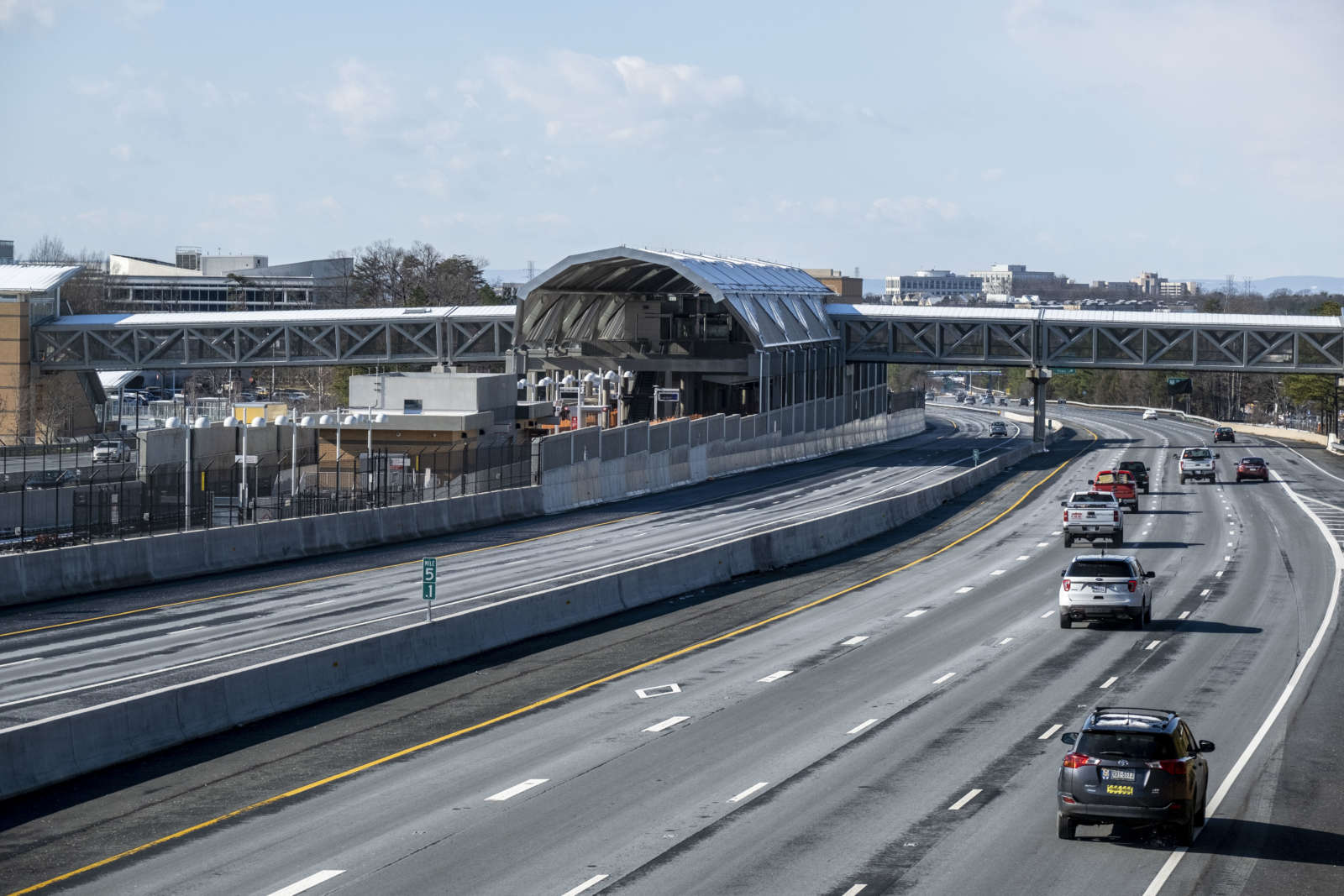
A consultant hired by Fairfax County has rounded up some thoughts from regional government, business and non-profit leaders on what was hit most by the pandemic and where the most help is needed.
The feedback is one of the first steps on HR&A’s task of building an Economic Recovery Framework, a recovery strategy commissioned by Fairfax County and the Fairfax County Economic Development Authority.
“This strategy will guide the County through stabilization and outline recommendations for fostering an equitable, inclusive recovery,” HR&A said in a report on the preliminary findings of their study.
In the initial findings, county and civic leaders highlighted the disproportionate impact of the virus on Latino and immigrant populations in Fairfax. The pandemic has also affected access to housing, with lost jobs leaving families without the ability to pay rent.
“Continue to invest in programs that support economic mobility and enrich residents’ lives (job training, continuing education, disability support resources) despite budget shortfalls,” said one unnamed County leader sourced in the findings.
Meanwhile, non-profit and health service providers said their capacity has been under-strain and expect further fundraising challenges in the upcoming year. Suggested solutions mainly involved streamlining services and trying to find efficiencies.
Major employers in the region, meanwhile, said decisions about real estate investments are being deferred until more certainty can be established, balanced only by hopes for a more efficient permitting process and a doubling down on tourism and leisure investments.
Smaller employers said they are still struggling with a lack of consumer confidence in returning to businesses and negative impacts have rippled along the supply chain. Many small businesses in the area are still focused on survival. Proposed solutions included more clear safety guidelines, streamlined online permitting, and rent deferment for small businesses.
More analysis of potential recovery scenarios is currently in the works, with a final report being drafted after that.
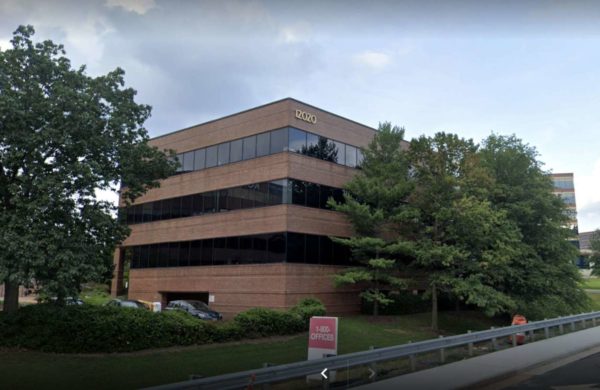
A Sterling man allegedly used four corporations — including two in Reston and Herndon — in a $21 million H-1B visa fraud conspiracy.
According to court documents, Ashish Sawhney, 48, used the corporations to submit fraudulent applications for H-1B work visas. He was arrested yesterday (Thursday) on charges of conspiracy to commit visa fraud. Two of the companies include Value Software Products, Inc. in Herndon and Business Pointers Inc. in Reston.
Court documents indicate Sawhney allegedly used the companies to provide information technology staff and software development services. Authorities believe the Sterling man submitted applications for H-1B visas, which stated that the foreign workers would fill jobs that did not exist at the time of filing.
According to the U.S. Attorney for the Eastern District of Virginia, Sawhney’s companies may have generated $21 million in gross profits from 2011 to 2016. The indictment also stated Sawhney, who is an Indian national, attempted to naturalize as a U.S. citizen by submitting an application with false statements.
Here’s more from the U.S. Attorney for the Eastern District of Virginia:
The case is being investigated by the Document and Benefit Fraud Task Force, which is comprised of multiple agencies including the Department of Homeland Security’s Homeland Security Investigations, the U.S. Department of State’s Diplomatic Security Service (DSS), U.S. Department of Labor’s Office of Inspector General, and U.S. Citizenship and Immigration Service’s Office of Fraud Detection and National Security that coordinate investigations into fraudulent immigration documents.
If convicted, Sawhney faces a maximum penalty of 10 years in prison. He was charged with two counts of conspiracy, three counts of inducing an alien to come to the U.S. for commercial advantage or personal gain, and one count of attempted naturalization fraud.
Photo via Google Maps
Hunter Mill District Supervisor Cathy Hudgins voiced disapproval against the Trump administration’s proposed shelter for migrant children in Northern Virginia.
Hudgins joins other Northern Virginia elected officials — including Fairfax County Board Chairwoman Sharon Bulova — who spoke out against the proposal.
“It doesn’t like it its is appropriate and it is certainly not representative of the community we live in,” Hudgins told Reston Now.
Earlier this month, the General Services Administration issued a pre-solicitation notice stating that the government is seeking 110,000 square feet of space for up to 14 years in Arlington, Fairfax Loudoun or Prince William counties.
Hudgins also noted that shelter for unaccompanied children may not meet the needs of the children they house.
“It seems like we should be trying to restore family structure,” Hudgins said.
The proposed shelter could house roughly 440 children.
Virginia currently has shelters for unaccompanied immigrant children in Bistow and Staunton.
File photo
Local residents involved with Herndon-Reston Indivisible, a local progressive advocacy group that formed after President Donald Trump’s election, protested outside a company that operates shelters for migrant youth.
Roughly 15 residents gathered on Friday, August 2 outside the headquarters of Caliburn International Corp., a for-profit operator of migrant youth shelters and private prisons.
Activists said the protest was intended to “express their dismay over the adverse shelter conditions, Caliburn’s role and the administration’s overall immigration policy.”
Herndon-Reston Indivisible formed to resist the “Trump agenda while electing Democrats who support our values of transparency, inclusion, tolerance and fairness.”
Caliburn is the parent company of Homestead, a federal childrens’ detention center that operates as a for-profit in Florida. Media reports from mainstream news outlets have raised questions about the treatment of children in these temporary shelters.
According to NPR, the average daily cost for caring for a child in these facilities is about $775 per day — much more than the average cost of housing a child at standard shelters.
The Homestead shelter currently holds 2,450 unaccomplanied migrant children between the ages of 13 to 17.
The advocacy organization plans to continue protests at the headquarters of Caliburn every other week.
 This is an opinion column by Del. Ken Plum (D), who represents Reston in Virginia’s House of Delegates. It does not reflect the opinion of Reston Now.
This is an opinion column by Del. Ken Plum (D), who represents Reston in Virginia’s House of Delegates. It does not reflect the opinion of Reston Now.
The federal administration policy of breaking up families as an intentional strategy aimed at refugee families has shocked the conscience of most Americans. Taking innocent children out of the arms of their mothers or fathers and shuffling them off to a “facility” without any explanation or known plans for their future has to be one of the cruelest acts of the federal government ever and is completely abhorrent to the moral standards of most Americans.
At the same time we condemn these evil acts of a misdirected federal agency and work in every way in the courts and through the ballot box to get these policies changed, it is important that the subject of isolating children be viewed in its larger context. As more is learned about the traumatic effects separation and isolation can have on the future emotional stability, mental health, and behavior of children, the necessity of reforming the way that our juvenile justice system functions becomes obvious.
Information gathered by The Commonwealth Institute shows that almost three-quarters of youth who have been held in the state’s juvenile prisons are convicted of another crime within three years of release. Data shows the longer a child is held in a facility the more likely it is they will commit a crime.
I recently talked with Valerie Slater who heads RISE for Youth: United Families, Safe Communities on my television show “Virginia Report.” Listen to that conversation on YouTube. She points out that racial disparities in Virginia’s juvenile system are higher than the national average. In Virginia, black youth are seven times more likely to be incarcerated than their white peers, and youth of Latino heritage are 2½ times more likely to be incarcerated than their white peers. Likewise, the higher the rate of poverty in their community the more likely children are to be sent to youth prisons. As Valerie wrote recently, “we must dismantle, once and for all, the systems that allow the institutionalization of children. The best way to protect and rehabilitate children is to ensure their parents are the foundation of their support, whether in their homes, communities or suitable community-based environments. There are community-based alternatives to youth prisons that work better, cost less, and help young people get the support they need to get back on track.”
At the recent meeting of the National Conference of State Legislatures (NCSL) I learned of the important work being done by a committee in NCSL to identify the principles that states should adhere to in reforming their juvenile justice systems. It is being demonstrated in states that it is possible to reform the system to reduce crime and recidivism, enhance public safety, and produce good citizens from those who in the past may have been referred to as criminals. I am pleased that Virginia is making improvements, but we must stay vigilant to continue progress.
As a nation of high moral standards, we must insist that the youngest and most vulnerable among us have an opportunity to succeed even if they are in our poorest communities or seeking asylum for their safety among us.
File photo
It’s no surprise lemonade stands manned by elementary or middle school students pop in the area in the summer. But one lemonade stand in Reston this weekend, operated by Emaan Rawn, 7, was a little different.
The second-grade student at Al-Fatih Academy in Reston raised $505 to help separated immigrant families. The stand is part of a national effort dubbed “Kids Take a Stand,” run through the activist group Lawyer Moms of America. Funds will be used to help reunify families separated at the border following the Trump administration’s since-reversed family separation policy. Although roughly 1,400 children have been reunited with their families, others remain in government custody.
Rawn was inspired to put up a stand when she saw her mother reading a news story about families separated at the border. Wondering how she would respond and if she would be able to take care of her brother in a similar situation, Rawn explored the idea of sending children toys or video games to the children.
When her mother Mahwish Hamlani heard of the lemonade stand initiative, Rawn was excited about the idea. She set up a stand at the intersection of Autumn Crest Drive and West Ox Road on Saturday from 9-11 a.m.
Hamlani said the experience was humbling for her daughter, who is a third-generation immigrant.
“Her grandparents left their home countries amid political turmoil in pursuit of safety and stability. Her parents availed educational and career opportunities to give Emaan and her brother the financial security that they enjoy. Everyone deserves a chance at the American Dream – regardless of their religion or place of birth.”
Funds from lemonade stand sales will go to Project Corazon. Thus far, the initiative has raised more than $20,000.
Photos by Mahwish Hamlani
The United Christian Parish (11508 North Shore Drive) will host an interfaith vigil in support of the national “Families Belong Together” campaign tomorrow.
A rally is scheduled for Saturday in the District in order demand the reunification of families and the end of family separation in detention.
In Reston, organizers hope Friday’s event will “shine a light of truth and hope.” The event is open to all and is organized by United Christian Parish Reston, Unitarian Universalist Reston, Washington Plaza Baptist, Shoreshim, Unity Fairfax, ADAMS Center, MCC NOVA, and others.
“The vigil is very important as we join together to light candles of hope and resistant to unjust and inhumane policies that separate families [and] put children, immigrants, and asylum seekers into cages,” said James Dean, co-chair of UCP’s justice and peace ministry team.
“Some of us can’t march, but we can gather together as part of this interfaith vigil,” Dean said.
Organizers of the national campaign issued the following description of the event:
The Trump Administration is a threat to the lives and safety of millions of immigrant children. Trump’s Immigration and Customs Enforcement (ICE) and Customs and Border Protection (CBP) agents have torn babies from their mothers, run over, punched, and sexually abused children and Health and Human Services have lost track of thousands of children and youth in their custody. They are unfit to be in charge of children.
We demand that Trump’s immigration agencies stop the implementation of any policy that separates children and youth from their families and that the Administration enlist qualified social service agencies to ensure the well-being of children who are still in their custody or have gone missing.
Photo via UCP
 This is an opinion column by Del. Ken Plum (D), who represents Reston in Virginia’s House of Delegates. It does not reflect the opinion of Reston Now
This is an opinion column by Del. Ken Plum (D), who represents Reston in Virginia’s House of Delegates. It does not reflect the opinion of Reston Now
Last week I joined with nearly fifty of my colleagues in the House of Delegates in signing a joint letter to all the Virginia senators and representatives in the United States Congress about “our outrage at the cruel and systematic separation of immigrant children and their families at the U.S. border with Mexico.”
While immigration issues are mainly federal responsibility, the actions on the part of the current administration have been so horrendous that we felt an obligation to speak out. We asked our Virginia delegation to intercede with the administration to cease the policy and to reunite the children involved with their families without delay.
Since our letter there have been some pronouncements from the administration about changes in the policy, but it remains entirely unclear what will happen with the thousands of children who have already been separated from their families and are being held in mass facilities that seem more like prisons than homes.
It is equally unclear as to whether a continuation of a zero-tolerance policy on border entry will simply replace prisons for children with adult prisons. I am pleased that Governor Ralph Northam has withdrawn the use of any Virginia National Guard forces from being involved in implementing this inhumane program.
The politics of building fear of immigrants to further political goals stinks as does the attempted use of children as pawns to bargain for a disastrously conceived wall with our neighbors. Beyond the politics are the long-term human rights issues that many thought and most hoped America was beyond. The negative long-term impact on the children involved cannot be over-looked or not addressed. Nor can the impact be underestimated of sending people back to a country from which they were seeking asylum in fear for their lives.
Earlier this month, the National Association for the Education of Young Children (NAEYC) along with 540 other organizations wrote to the administration as part of the Protecting Immigrant Families Campaign stating their opposition to actions that would separate children from their parents. As NAEYC stated it, “There are no ends that justify these means.”
The organization that is well respected for its research on the education of young children went on to state, “The research is clear, and so are our core values…We have an obligation to create and advance policy solutions that support child well-being and strengthen the bonds between all children and their families.”
Part of that research has found the traumatic impact of separation on young children can negatively impact them for the rest of their lives. As NAEYC said, “You don’t have to be either a parent or an educator to understand that separating children from their families–and putting them in a place where they cannot be hugged, touched, or loved–causes harm. And not the kind of harm that is easily repaired. This is the kind of harm that is significant and long-lasting, interfering with positive child development and well-being.”
Please take some time and join me in expressing to the administration our opposition to their policies and actions on immigration.
 This is a commentary from Del. Ken Plum (D-Fairfax), who represents Reston in Virginia’s House of Delegates. It does not reflect the opinion of Reston Now.
This is a commentary from Del. Ken Plum (D-Fairfax), who represents Reston in Virginia’s House of Delegates. It does not reflect the opinion of Reston Now.
A Kentucky school administrator recently expressed sentiments that I feel but could not write as clearly as she did. In an op-ed piece in the Lexington (Kentucky) Herald-Leader she wrote:
“Social justice, civil discourse, empathy, historical context and civic engagement are at the heart of preventing and resolving instances like the one we witnessed there (in Charlottesville). … If we subscribe to the belief that hate is a learned behavior, we must also take ownership for failing to provide an educational space to combat the inequality that haunts minorities every day and that paralyzes our nation in times of tragedy. … History matters. Civic engagement matters. And, because of their decline, social justice, civil discourse, and empathy have become lost arts in a nation of people who can no longer talk to one another.”
As a former teacher of history and government, I especially appreciated her call for “a strong social studies curriculum that provides equitable opportunities for civic engagement, civil discourse and historical context.”
The ignorance of history shown by those who have been leading the opposition to removing Confederate statues is appalling. The statues were erected during times when white supremacy efforts termed the “Lost Cause” were at their strongest. Beginning in the late 19th century there were many movements to glorify the Old South and to justify the Civil War, or the “War of Northern Aggression” as they called it, and the erection of statues was part of it. Paralleling those activities was the passage of legislation that virtually took away the right of African Americans to vote and that separated the races in public schools and most every aspect of society. The second surge of erecting statues came when the white supremacists were opposing the Civil Rights movement in the 1960s.
Viewed in their historic context, these statutes represented a repression of social justice, failure of civil discourse and lack of empathy on the part of those supporting them.
Equally as appalling is the lack of knowledge or the unwillingness to admit the central role that immigrants have played in our history. The history of the land we now call Virginia did not begin when the English arrived in 1607; a civilization existed here for at least 15,000 years before that time. That makes all of us except for Native Americans descendant of immigrants.
There is seldom a day that passes that I do not meet someone who may be brand new or first- or second-generation Americans who are making our communities, society and economy stronger and better. Many choose to ignore the history of immigrants especially most recently that of dependent children. They may be undocumented, but they are not “illegals” — people are not illegal.
Certainly, our immigration system needs work. Endless paperwork, complex bureaucracy and an entanglement of laws sometime stand in the way of people who should be given a path to citizenship that can be navigated. I thought that Richard Cohen, head of the Southern Poverty Law Center, expressed it best when he said of the decision to rescind DACA that it was “one of the most senseless, heartless, inhumane acts of any president in recent memory.”
We should know better and certainly we must insist that all act better!
An announcement Tuesday morning from the Trump Administration that it will be ending the Deferred Action for Childhood Arrivals (DACA) immigration policy has elicited spirited response from Virginia’s Democratic delegation in Congress.
DACA, implemented by President Barack Obama in 2012, allows nearly 800,000 undocumented immigrants living in the United States to apply for renewable two-year visas. It is available to individuals who arrived in the United States before the year 2007 who were under the age of 16 at the time of arrival and under the age of 31 at the time of implementation.
Attorney General Jeff Sessions made the announcement Tuesday morning on behalf of the Administration. Afterward, both of Virginia’s senators released statements of outrage on their Twitter accounts. Sen. Tim Kaine (D-Va.) says the decision is “heartless.”
Ending DACA is a heartless decision that breaks the President's promise to kids who were brought here through no fault of their own
— Senator Tim Kaine (@timkaine) September 5, 2017
Rescinding DACA forces #DREAMers back into the shadows & puts them in danger of being deported from the country they love & know as home
— Senator Tim Kaine (@timkaine) September 5, 2017
In the wake of the President’s heartless decision to end DACA, Congress must immediately pass the bipartisan DREAM Act to protect #DREAMers
— Senator Tim Kaine (@timkaine) September 5, 2017
The DREAM (Development, Relief and Education for Alien Minors) Act has been introduced several times in Congress in recent years. The current version was introduced in July by Sens. Dick Durbin (D-Ill.), Jeff Flake (R-Ariz.), Lindsey Graham (R-S.C.) and Chuck Schumer (D-N.Y.). It would institute a multi-phase process for qualifying alien minors (so-called “DREAMers”) in the United States that would first grant conditional residency and, upon meeting further qualifications, permanent residency.
Sen. Mark Warner (D-Va.), in his statement, said DACA is a “promise” that has allowed children of undocumented immigrants to “realize their full potential.”
This is a disgrace. Ending #DACA means going back on our word to nearly 800k #DREAMers who've known no other home than America. #DefendDACA pic.twitter.com/nEmpaMe8gM
— Mark Warner (@MarkWarner) September 5, 2017
In a statement released following Sessions’ remarks, President Donald Trump said DACA has “helped spur a humanitarian crisis — the massive surge of unaccompanied minors from Central America including, in some cases, young people who would become members of violent gangs throughout our country, such as MS-13.”
The decades-long failure of Washington, D.C. to enforce federal immigration law has had both predictable and tragic consequences: lower wages and higher unemployment for American workers, substantial burdens on local schools and hospitals, the illicit entry of dangerous drugs and criminal cartels, and many billions of dollars a year in costs paid for by U.S. taxpayers. Yet few in Washington expressed any compassion for the millions of Americans victimized by this unfair system. Before we ask what is fair to illegal immigrants, we must also ask what is fair to American families, students, taxpayers, and jobseekers.


